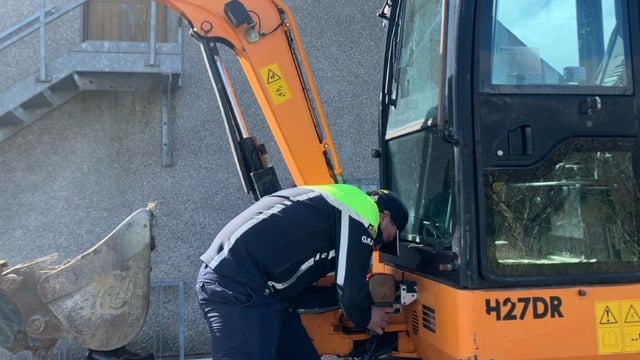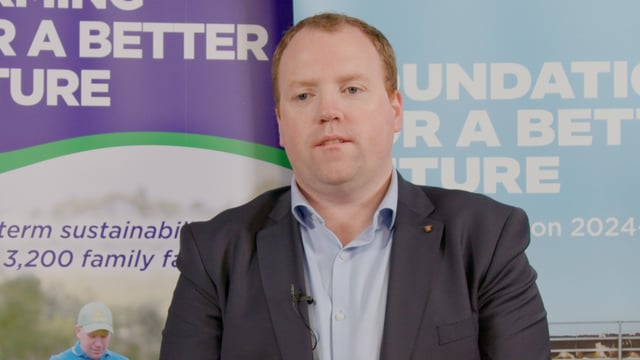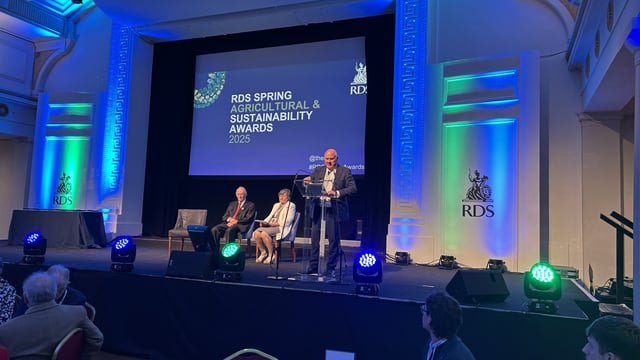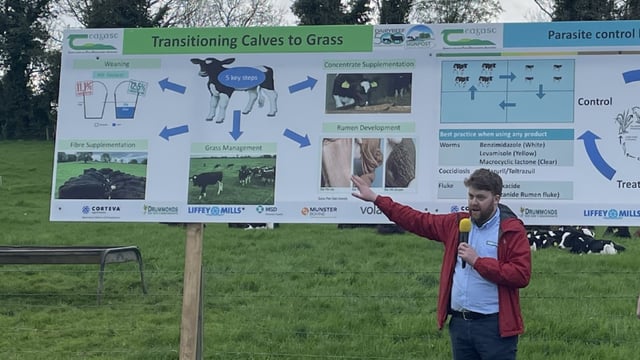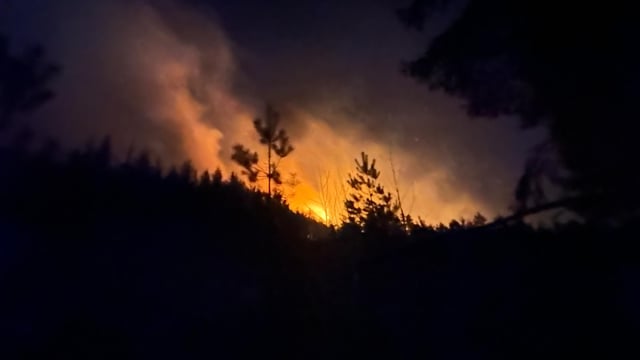ESB proposes greater legislative land access for forestry corridors
ESB Networks has proposed a number of new measures to enhance the resilience of the electricity grid for legislative consideration, including the creation of "forestry corridors" to protect overhead lines.
If granted, the proposal would equip the electricity provider with even greater entitlements to land access and usage.
The creation of forestry corridors on a "statutory basis" was just one of the recommendations made by the ESB in it's 'Winter 2025 Resilience Plan', published last month, in response to a government request made in the aftermath of Storm Éowyn.
The resilience plan listed a number of measures that could be taken in the short term to counter potential impacts of any future storms this coming winter, as well as other initiatives that would ensure longer term electrical grid viability.
As part of the plan, the ESB has identified 710km of forestry corridors in its analysis of customers most affected by forestry windfall in recent storms.
It outlined plans to work alongside Coillte and the Department of Agriculture Food and the Marine, as part of its ongoing efforts to identify the sections of the network at the "highest risk of further windfall".
It reportedly expects to complete this analysis by the end of April 2025.
According to the ESB, there is a "requirement" that the corridors deemed most at risk of further windfall be cleared before winter 2025, which will demand news laws to be enacted in its favour.
ICMSA response
The ICMSA have questioned the rationale of the proposal, which it said has caused' "high alert" among the farming community.
President of ICMSA, Denis Drennan, labelled the proposal to equip the ESB with more legal entitlements as "odd and more than a little contradictory", given that in his opinion, it is the body responsible for a system "widely accepted as demonstrably not-fit-for-purpose".
He said the idea that an obvious system-breakdown, as was demonstrated in the aftermath of Storm Eowyn, could be repaired by reducing people’s property rights further, was "fanciful".
He expressed the association's disappointment concerning the government's lack of consultation on the matter with farmers, when it had previously called for such engagement to occur.
Drennan noted that in a recent survey, almost 90% of responding ICMSA members believed that farmers should be better utilised during storm events to ensure issues are dealt with in a timely fashion.
“While forestry corridors through plantations can be and should be addressed through existing legislation and schemes, there’s going to be a lot of interest and eyebrows raised at the reports that the ESB is seeking wider powers to cut trees and hedgerows near power lines.
"The ESB already has those powers. The problem is not the lack of powers, it’s the lack of action that we see, where farmers and other landowners contact their local ESB office and report trees growing too close to poles or lines.
"This is exactly the point that ICMSA made in the immediate aftermath of the most recent storm: it’s simply not possible or credible to expect the ESB to have crews ready to zip out to every overhanging tree from Donegal to Dunmanway and from Clondalkin to Connemara.
"It’s not a question of more powers; it’s a question of whether it’s even possible and we think that it is not," Drennan stated.
He indicated that the ESB should instead work with farmers on basic hedgerow maintenance instead of being granted with additional "centralised powers", and to conduct greater monitoring of ground conditions around electricity poles.
"The ESB doesn’t need more centralised powers; it needs more ‘eyes and ears’ monitoring the growth around power lines and the condition of the poles in exactly those rural areas that were hit hardest in the recent storms.
“As always farmers are willing and happy to play our part in the necessary efforts to address the aftermath of Storm Eowyn and to prepare for the next extreme weather event. But we won’t be walked on in terms of unnecessary and unfair legislation," he concluded.
The ICMSA President urged the ministers responsible to look at other responses to what he deemed was "undoubtedly an urgent issue".
He called on the ESB to work collaboratively with farmers, rather than considering additional legislation that will be utilised against them.


